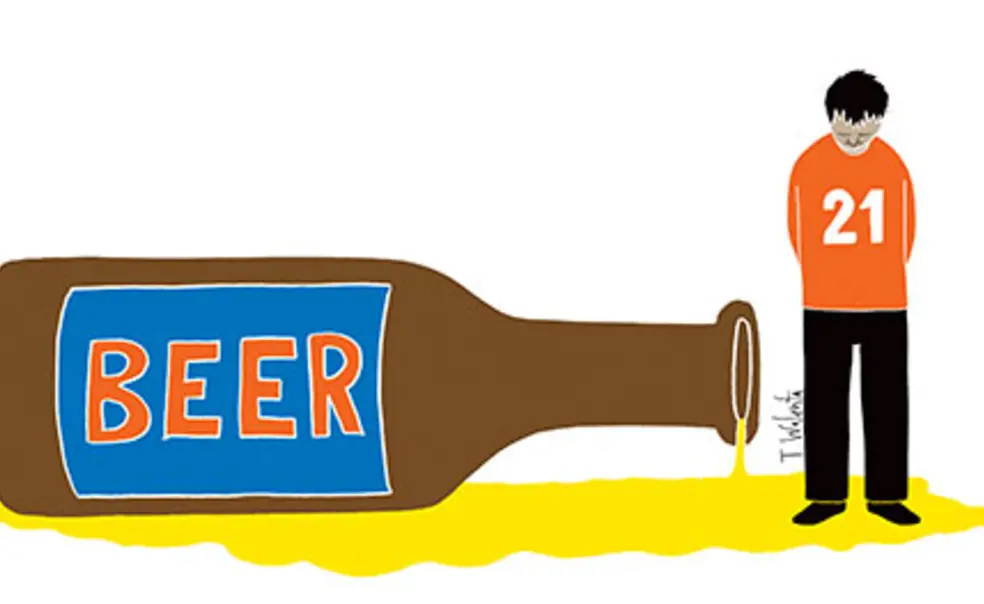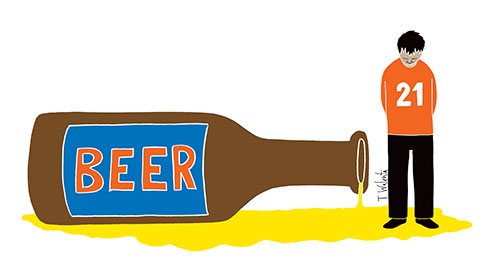Student Dispatch: A Group’s Drinking Event Puts Spotlight on Alcohol Use
After years of keeping a low profile, Princeton’s enduring 21 Club drew attention when students drinking at a club function in March damaged Tiger Inn property, leading to the resignation of four Tiger Inn officers.
“Our officers neither planned, hosted, nor participated in the function, but they allowed it to take place, putting the community at risk,” said Robert “Hap” Cooper ’82, Tiger Inn board president and a 21 Club alumnus.
Reported to have originated in 1881, the 21 Club has been described as one of the nation’s longest-running college drinking fraternities. Its all-male membership comprises 21 juniors and 21 seniors. Alumni include such high-profile names as former secretaries of state James Baker ’52 and George Shultz ’42.

Cooper remembers that his own sign-in ceremony “started out as a lot of fun, but quickly turned unpleasant and ended badly,” with members consuming 35 beers in short order. After his body temperature “plummeted,” he said, friends held him up in a hot shower, then sat with him through the night. “The physical effects of the alcohol poisoning lasted days,” he said. “The whole episode scared me straight.”
Perhaps because of an increasingly watchful administration and a diversification of student interests, the 21 Club recently has operated under the campus radar. Members are reluctant to comment about club activities to the press. Though the club today seems like a relic of Princeton’s old-boys-club era, heavy drinking on campus is no antiquated custom.
“High-risk drinking continues to be a significant public-health problem on college campuses, and Princeton is no exception,” said Dr. John Kolligian, executive director of University Health Services (UHS). “We acknowledge that there is no single solution.” UHS works to prevent dangerous drinking through initiatives such as a pre-matriculation online course on alcohol education and bystander-intervention programs.
“One of the most important things we can do is change students’ perceptions about the prevalence of drinking on campus,” said John McNamara ’14, a member of the Alcohol Initiative committee, which allocates University funds in support of social alternatives that are not alcohol-centered. “Many students are uncomfortable with high-risk drinking, but they are afraid to express this sentiment.”
Others saw the recent 21 Club news in a different light. “In some ways, the 21 Club romanticizes drinking, and the fact that it’s a big deal shows that people aren’t drinking that way normally,” said Gabriel Fisher ’17.













No responses yet